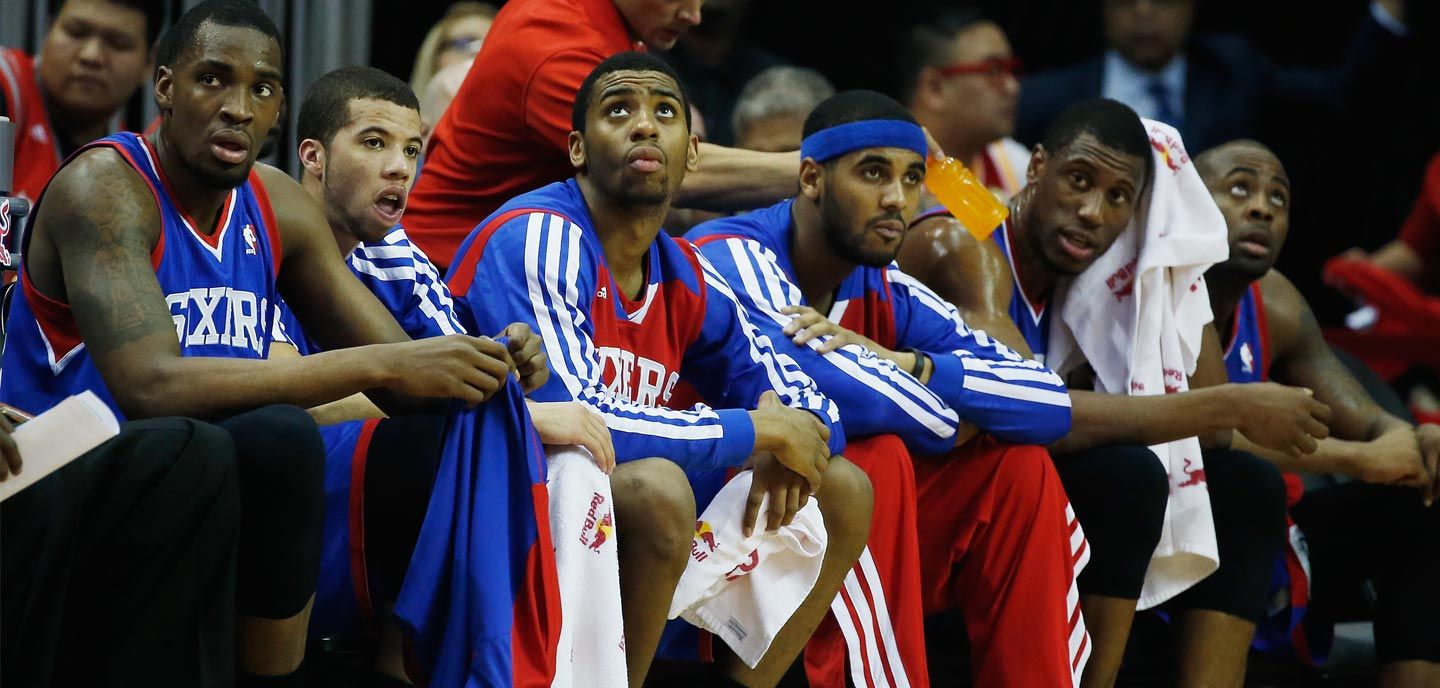With the NBA All-Star break and trade deadline in our rear-view mirror, many teams arrive at a crossroads.
From here out they will either engage in a full court press toward the playoffs or a draft-lottery nosedive affectionately referred to as “tanking.” (For this years’ version, see Los Angeles Lakers).
As a Philadelphia 76ers fan I am VERY sensitive to the idea of tanking, though after three years in the wilderness perhaps we may reach the promised land on the backs of Joel Embiid and Ben Simmons—but I digress.
Until recently when my beloved basketball team’s former GM invited us all—apparently, even the players—to “trust the process,” tanking was never considered a legitimate long-term strategy.
But if you google the words “tanking” and “NBA” currently, you will find no shortage of articles arguing which teams should tank, the merits of tanking, and which NCAA prospects teams may receive as a reward for tanking.
The benefits associated with tanking are evident, though not guaranteed. The NBA’s worst teams generally get to draft in the first few slots, but the lottery system makes that coveted top spot anything but a sure thing.
In fact since the draft lottery was instituted in 1990, the team with the worst record has only received the No.1 pick five times—that is slightly less than 20% of the time while the actual odds of the worst team drafting first is 25%.
But tanking also comes at a cost.
Aside from the ethical questions of how tanking may impact the integrity of the game, the culture of losing required to acquire top prospects via this strategy may harm the development of potentially promising young players.
One could argue that among the most talented athletes, those who develop the deepest will to win are more likely to lead their teams to a championship. Athletes on tanking teams cannot learn how to snatch victory from the jaws of defeat.
Get our "Top Articles" sent to your inbox weekly.
Tanking teams are not the only ones who must deal with the side-effects of a losing culture. Injuries, lack of chemistry, or the inability to acquire sufficient talent can leave even teams committed to winning now in similarly dire straits.
So what should an athlete do with their talents when it becomes evident that a winning season is out of reach—either because of an intentional plan or simply unfortunate circumstances? How can the athletic ability they have been given be used in a manner worthy of the Gift Giver?
Here are five things to remember:
Our gifts come from God
“Every good gift and every perfect gift is from above, coming down from the Father of lights” (James 1:17). Even in seemingly hopeless circumstances, hope can be found in the reality that good gifts (and yes, athletic gifts qualify here) do not appear by chance.
They are intentionally given by a sovereign Creator and therefore have intrinsic value whether they are used in a winning or losing effort.
Our gifts are for God
Jesus was always cognizant of the fact that his purpose on earth was to do the will of his father. In similar fashion we are called to do all things for the glory of God, whether we eat or drink or whatever we do (I Corinthians 10:31).
Surely the “or whatever” includes everything from serving an ace down the T or hitting an opposite field home run to double faulting on match point or striking out with the bases loaded. The intent—doing all things for the glory of God—not the outcome is most important.
Our gifts are for the benefit of others
Even though he was “in very nature God” Christ “made himself nothing by taking the very nature of a servant” (Philippians 2:6-7). No amount of championships, scoring titles or MVP trophies can compare with being “in very nature God” on the scale of personal awesomeness.
So if Christ, who is in very nature God, had the mindset of a servant, how much more should we think of ourselves in those terms? Having mentally prepared ourselves for service we are then able to live out 1 Peter 4: 10: “As each has received a gift, use it to serve one another, as good stewards of God's varied grace.”
During a losing season service can take on many forms. In some cases it may look like extending encouragement or grace to frustrated teammates and coaches. It could also mean finding ways to show extra appreciation to supportive fans.
Our gifts come with accountability
In the parable of the talents Jesus teaches us that we are held accountable for how we use the gifts granted to us by God.
In this illustrative story a master entrusts property (talents) to his three servants with the expectation that they will steward it well. Two of them do so and multiply the talents they receive. The third servant literally buries his talent in the ground.
When the master returns he has harsh words for this “worthless servant” and orders him to be cast “into the outer darkness” (Matthew 25:30).
This suggests that Jesus takes seriously the idea of stewarding well what we have been given and thus we should take stewardship seriously. Each time an athlete gives less than their best effort on the field of play, undervalues practice (yes we're talkin bout practice...not the game) or fails to care for their body with proper nutrition, training and treatment, they fall short of the stewardship to which they have been called.
Our gifts come with grace
Knowing that we are accountable to God for how we use our talents can be overwhelming and potentially cause overcorrection and unhelpful perfectionism.
Fortunately, our God is “compassionate and gracious, slow to anger, abounding in steadfast love” (Psalm 103:8). Our Father knows how we are formed and that we have limitations because he formed us. Since he walked in our shoes Christ is able “to empathize with our weaknesses” (Hebrews 4:15). Remembering that God is gracious in the face of our weaknesses frees us up to invest heavily in our gifts without fear of failure.
Ultimately our gifts are gifts of grace. We did nothing to earn them and we don’t deserve them. But God grants us an opportunity to use them for his glory and for the good of others.














